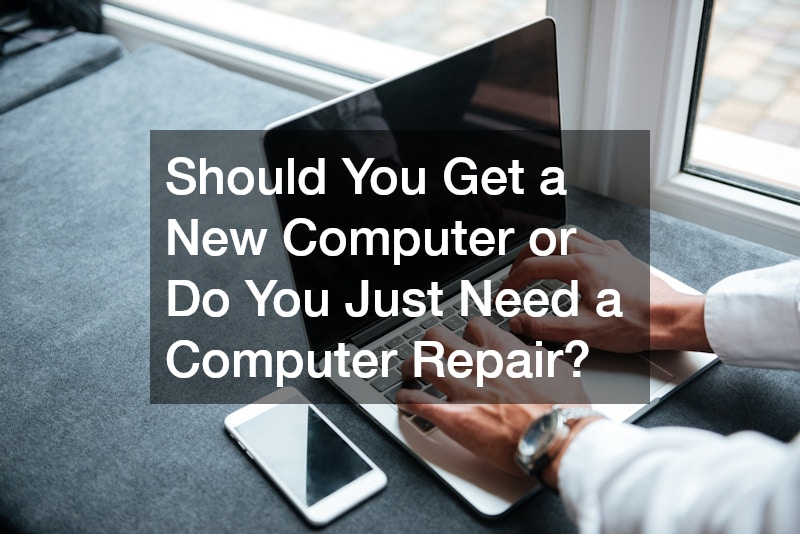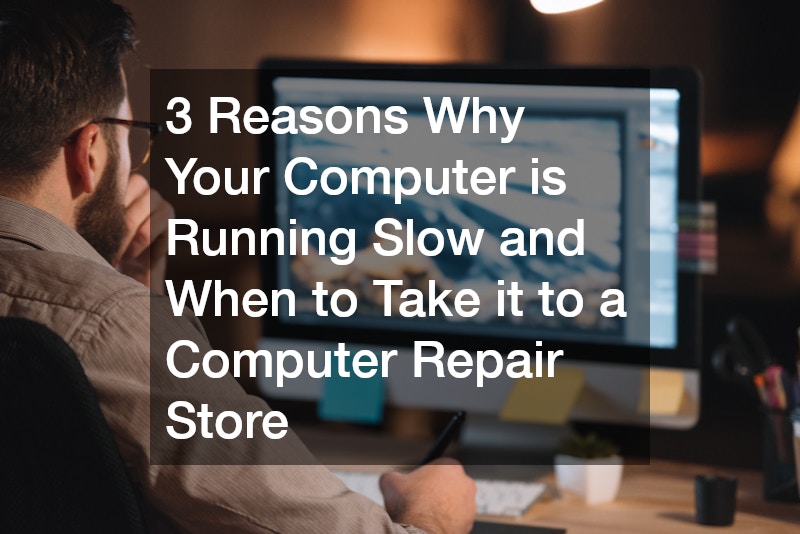When your computer starts acting up, it can feel like your entire work or personal life is thrown off track. Slow performance, error messages and unexpected shutdowns can be frustrating — but do they mean it’s time to invest in a brand-new machine or would a targeted computer repair solve the issue?
For many Australians, a computer is a daily essential, just like a phone, a car or even visits to the dentist. Knowing whether a repair or replacement is the right choice can save you time, money and headaches.
Understanding the Root Cause
The first step in deciding between a repair and buying a new one is identifying the cause of the issue. A sudden decrease in speed, freezing screens or noisy fans may point to software problems, viruses or dust build-up — all of which can be resolved without replacing the device. On the other hand, if your computer is several years old and struggles to keep up with modern software, it may be reaching the end of its useful life.
Professionals offering computer repair services can run a full diagnostic to pinpoint whether the trouble lies in software, hardware or both. This is especially important if you rely on your device for work or business — for example, a dentist managing appointments and patient records digitally can’t afford frequent downtime.
Repair: A Cost-Effective Option
In many cases, a repair is the smarter and more cost-effective solution. Replacing a hard drive, increasing RAM or removing malware are relatively quick and inexpensive fixes that can significantly improve your computer’s performance. A well-done repair can extend the life of your device by years, delaying the need for an expensive replacement.
Computer repair is also more sustainable. Instead of contributing to the growing problem of e-waste, you’re making use of what you already have. With repair services available across cities and regional areas in Australia, support is usually close by and affordable.
If your device is still under warranty or covered by insurance, a repair could cost you next to nothing. Even out-of-warranty repairs are often far cheaper than purchasing a new machine — especially if your computing needs are modest.
When a Replacement Makes More Sense
While repairs are often ideal, there are scenarios where buying a new computer is the better option. If your current device is more than five to seven years old, parts may be difficult to source, software updates may no longer be supported and overall performance might never reach modern standards — even after repairs.
A new computer brings faster processors, higher resolution screens, longer battery life and improved security features. For professionals handling sensitive information, such as a dentist storing patient records or using digital imaging, upgrading to a secure, up-to-date system can be essential for compliance and peace of mind.
You should also consider a replacement if repair costs approach or exceed 50% of the price of a new model. In this case, investing in new technology may give you better value and long-term reliability.
The Hidden Costs of Downtime
When deciding between repair and replacement, don’t just compare dollar amounts. Consider the cost of time lost. If you’re self-employed, own a small business or rely heavily on your device, prolonged downtime can lead to missed deadlines, reduced productivity and reputational damage.
Think of it the same way a dentist might approach a failing dental chair. A few repairs may keep it going temporarily, but if breakdowns are frequent and interrupt patient care, investing in a new unit becomes necessary. The same logic applies to your computer.
Getting Expert Advice
Before making a final decision, consult a trusted computer technician. Reputable professionals can provide a transparent breakdown of what’s wrong, how much it would cost to fix and whether a replacement is a more logical choice in your situation.
In some cases, a hybrid approach may work. For example, if your laptop’s screen is damaged but the internal hardware is solid, replacing the screen alone might restore full functionality. On the other hand, if you require more processing power for design, gaming or business software, upgrading internal components or switching to a more powerful system may be the smarter investment.
Future-Proofing Your Setup
Whether you choose to repair or replace, consider how your needs may change in the next few years. Are you planning to work from home more frequently? Will you be handling large files or running demanding software? Buying or upgrading a computer isn’t just about fixing a current issue — it’s also about ensuring your system stays relevant and reliable in the future.
.




